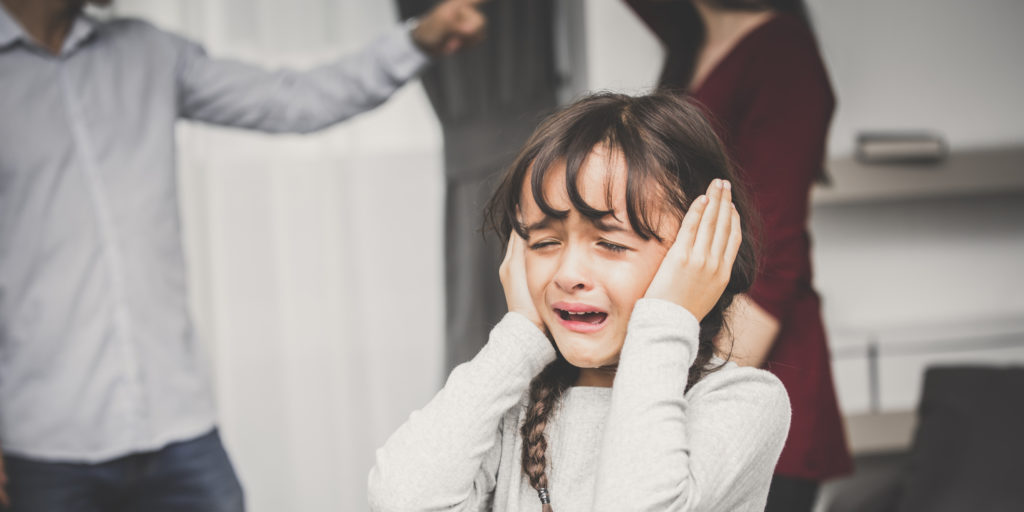

Luckily, awareness is building among parents. This makes them hesitant about intimate relationships in the end, having far-reaching impacts in their conjugal lives. Witnessing a dysfunctional relationship between parents makes teenagers like Rahat crave perfection, an extreme "ideal" which does not exist. The reality, though, couldn't be starker. So, when she stopped talking to me, I blamed everything on myself."Ī puppy-love-gone-wrong may look insignificant. To me, the girl was the light, whose warm, cheerful illumination helped me get over my domestic demons. "Witnessing my parents fight, a sense of paranoia worked within me.

GROWING UP WITH PARENTS WHO FIGHT HOW TO
Even though we chatted and talked like normal, it was very tough for me as I don't actually know how to talk to a girl," Rahat comments. "I started to develop feelings for a girl from my class. When they get married, this becomes a bigger problem as often violent behaviour witnessed early on is repeated. The problems in intimate relationships become evident in adolescence when teens hit puberty and start experiencing more than a few hiccups in their budding romantic relationships.Ī 2001 research reveals that, due to the trust issues instilled in them early on, children from high-conflict families experience commitment issues, abandonment issues and infidelity in their romantic relationships. They encounter difficulty in trusting others, and are more likely to abuse their own children physically and mentally, adds Akter. Growing up witnessing violence in a family environment that is not built on trusting relationships, these children face interpersonal issues as grown-ups. Their actions only turned me away from everything good, even my parents," Isfar says. They never helped me as they claim to do. "As I later found out, it was a really bad company. He stopped caring about his studies and spent more time with friends. Terrified by seeing his parents violently fight, Isfar Alam* was influenced by his mother and developed resentment for his father. His personality and behaviour transformed too." Rahat's mother confesses having witnessed such changes in her son, saying, "My son even fainted seeing our fights. They, sometimes, become arrogant and stop caring about their own good in general, with their tendency towards self-harm pushing them towards bad company and harmful activities.Īkter points out, "These children are more likely to go into substance abuse, criminal activities or committing suicide." Additionally, she reports that they can be impulsive, judgemental, develop habitual lying tendencies and also tend to overreact regarding situations they have no control over. They almost always blame themselves," she adds.įurthermore, the psychological problems growing up result in these children developing behavioural setbacks causing them to face long-term interpersonal issues. "As a result, they feel extreme emotions – guilt, shame, fear, and anger – depending on what they have done. They consider themselves to be inferior, and never think of the consequences of their potential actions. According to Akter, cases of phobias, lopsided daily routines, depression, anxiety, and nightmares are common in these children. The psychological effects don't stop there. "With time, they become low on self-confidence, becoming fearful and resentful about their company, exhibiting more delinquency in their adolescence." "Children from disturbed family backgrounds develop a sense of dogma – resulting in great difficulty in thinking and deciding for themselves," says Rumana Akter, clinical psychologist at Inter Services Selection Board (ISSB). Watching parents quarrel, these children go through radical changes – psychologically, emotionally, and behaviourally. The ordeal they face, and trying to prevent this by any means, has an extensive impact on their innocent minds and more often than not, end up defining their lives. Unfortunately, the plight of these children is something that is almost always ignored.

Another study, in 2012, shows that kindergarteners who grew up in conflict-ridden households experienced mental disorders and behavioural problems as they became adolescents. It also states that being constantly exposed to such a stressful environments can cause long-term cognitive damage. To put that in context, children from more than two-thirds of our households go through the trauma of seeing their parents oftentimes violently fight over a myriad of issues.Ī 2013 study published in the Psychological Science journal shows that even infants, only 6 months old, can be affected by parents who fight a lot, as they respond to negative tones in conversation. A Bangladesh Bureau of Statistics study shows 72 percent of married women face psychological, physical, and economic abuse. Parents fighting has serious repercussions on a child's life, especially in Bangladesh, where domestic violence is a common phenomenon.


 0 kommentar(er)
0 kommentar(er)
